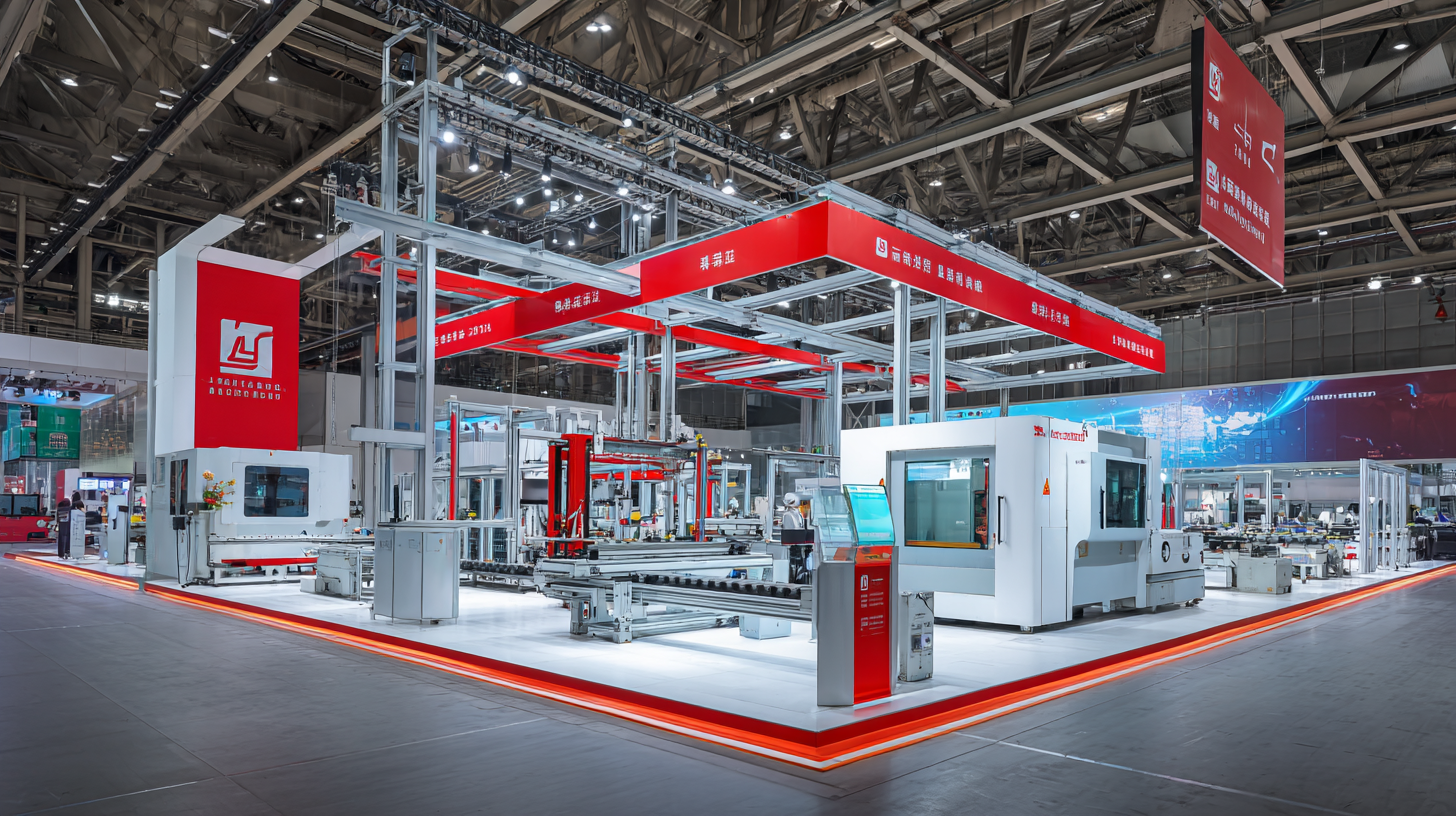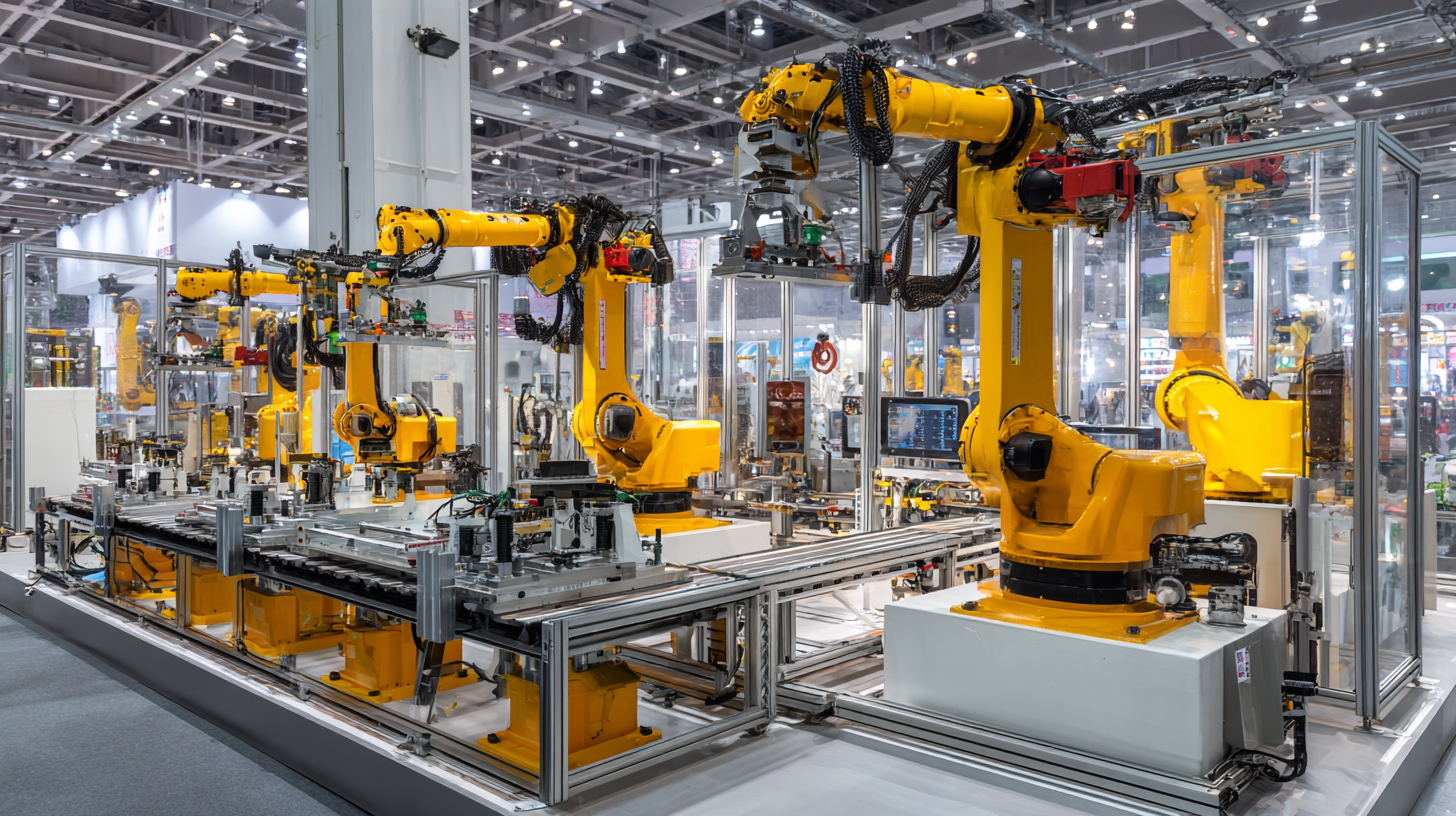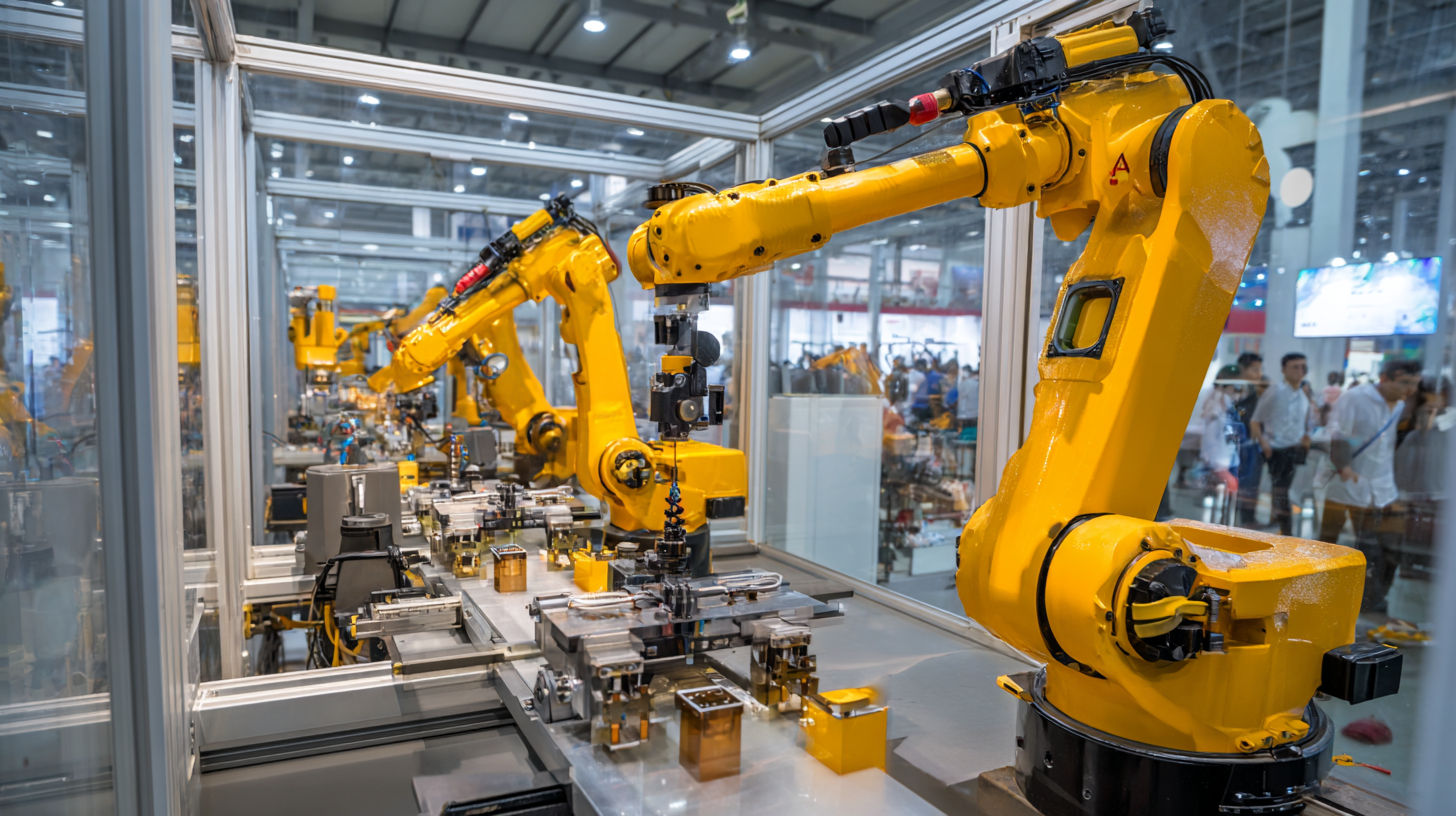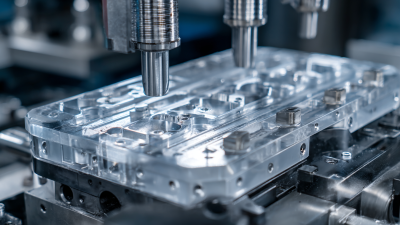The 138th China Import and Export Fair in 2025 is set to be a pivotal event, showcasing the latest advancements in automated machines that are transforming industries globally. According to recent reports by the International Federation of Robotics, the global market for industrial robots alone is projected to reach $70 billion by 2025, highlighting a growing demand for automation across various sectors. With automation expected to enhance productivity by up to 30% and reduce labor costs significantly, businesses are increasingly investing in automated solutions to remain competitive.
 This fair will not only exhibit cutting-edge automated machines but will also serve as a platform for discussions on their impact on supply chains, manufacturing processes, and economic development. As industries strive for modernization, the advancements showcased at this event will likely set the tone for the future of automated technologies.
This fair will not only exhibit cutting-edge automated machines but will also serve as a platform for discussions on their impact on supply chains, manufacturing processes, and economic development. As industries strive for modernization, the advancements showcased at this event will likely set the tone for the future of automated technologies.
The 138th China Import and Export Fair, set to open in Guangzhou on October 15, 2025, promises to be a landmark event showcasing the latest advancements in automation technologies. As global industrial leaders converge at this expansive exhibition, the emphasis on innovation and intelligent solutions takes center stage. With more than 240,000 anticipated attendees, this fair reflects the increasing sophistication and scale of China’s trade showcases, positioning itself as a critical hub for the automation industry.
Among the highlights of this year’s fair is the dedicated Service Robots Zone, featuring a range of cutting-edge applications from humanoid robots to specialized industrial solutions. This initiative symbolizes the fair’s commitment to fostering innovation within the automation sector. The event not only marks a celebration of technological advancement but also serves as a strategic platform for businesses to network and explore new opportunities, reinforcing China's emergence as a global leader in robotics and automated machinery.
At the upcoming 138th China Import and Export Fair in 2025, the spotlight will likely be on the transformative influence of AI and robotics in the manufacturing sector. As industries embrace AI-driven robotics, manufacturers are experiencing enhanced efficiency and productivity. However, the integration of these technologies comes with significant challenges, particularly regarding job displacement and the uneven impact on labor markets. While studies indicate that robots can streamline operations, they also raise concerns about their effect on employment, especially in developing regions.
To ensure a smooth transition to automated systems, manufacturers should consider several important tips. First, fostering a culture of continuous learning within the workforce can help mitigate fears surrounding job loss and encourage workers to adapt to new roles created by automation. Additionally, investing in training programs focused on upskilling employees for positions that involve collaboration with robots can lead to a more resilient workforce. Lastly, exploring the potential of collaborative robots—those that work alongside humans—can maximize productivity while preserving the essential human element in manufacturing processes.

At the 138th China Import and Export Fair in 2025, the focus on sustainability trends in automated machine production is set to redefine industry standards. Recent reports from the International Organization for Standardization (ISO) indicate that sustainable manufacturing practices can reduce energy consumption by up to 30% while decreasing carbon emissions by 25%. As automated machines evolve, integrating green technologies is no longer a choice but a necessity for manufacturers aiming to stay competitive in the global market.
Moreover, according to a study by MarketsandMarkets, the global market for green manufacturing is expected to reach $1 trillion by 2025, driven by the increasing demand for eco-friendly processes and materials. The fair will showcase innovations such as energy-efficient robotic systems and biodegradable components, highlighting efforts to minimize environmental impact. As businesses adopt these sustainable practices, they not only comply with stricter environmental regulations but also cater to a growing consumer base that values sustainability, positioning themselves as leaders in the automated machine sector for the future.

The 138th China Import and Export Fair 2025 serves as a pivotal platform for global partnerships in the realm of automated machines. As countries and companies converge to showcase their innovations, collaboration emerges as a key theme. By fostering relationships among diverse stakeholders—including manufacturers, technology developers, and researchers—the fair is set to highlight how joint efforts can drive technological advancements and reshape the future of automation.
In this rapidly evolving landscape, sharing knowledge and resources is essential. Companies participating in the fair will explore cross-border collaborations, aiming to blend expertise from different regions to create cutting-edge solutions. The potential for joint ventures and strategic alliances can lead to the development of more efficient and sustainable automated systems, making the fair not just an exhibition but a collaborative effort to push the boundaries of technology. Identifying common goals and leveraging the strengths of various partners will be crucial in navigating the challenges and opportunities within the global market.
The automation market is experiencing a significant transformation, driven by advancements in technology and the increasing demand for efficiency in manufacturing and trade. According to recent industry reports, the automated palletizing machine market is estimated to reach $758.17 million, with projections indicating a growth to $1.15333 billion by 2031, reflecting a compound annual growth rate (CAGR) of 4.77%. This surge in the automated palletizing machines showcases the industry's shift towards smart manufacturing solutions, particularly as the world adopts "Industry 4.0" practices.
The shift towards automation is not only motivated by the need for better productivity but also by the desire for sustainable and intelligent industrial practices. As highlighted by industry leaders, there is a strong focus on industrial wireless innovations and the implementation of AI to create a more resilient and eco-friendly manufacturing landscape. Companies are prioritizing advanced technologies to eliminate the common issues of equipment isolation and fragmented solutions, ensuring seamless integration and cooperation within factories. This trend positions automation at the forefront of the future market, shaping the ways businesses engage in trade and production.
| Automation Type | Market Share (2023, %) | Projected Growth Rate (2024-2029, %) | Key Applications | Regions with High Demand |
|---|---|---|---|---|
| Robotics | 25% | 15% | Manufacturing, Warehousing | Asia, North America |
| AI-Powered Automation | 18% | 20% | Data Analysis, Customer Service | Europe, Asia |
| IoT Integration | 22% | 25% | Smart Homes, Industrial Automation | Global Markets |
| Automated Guided Vehicles (AGVs) | 15% | 30% | Logistics, Retail | Asia-Pacific, Europe |
| Cloud-based Automation | 20% | 18% | Business Processes, IT Management | North America, Europe |






